News

Increase in Import Duty on Wheat Flour Takes Effect
The import duty on wheat flour has been revised effective as of midnight yesterday.
This adjustment entails an increase in the tax imposed on a kilogram of wheat flour from 16 rupees to 27 rupees.
Meanwhile the system of import licenses for grain has been cancelled since midnight yesterday.
The Minister of State for Finance Ranjith Siambalapitiya says that this is expected to abolish the existing monopoly for the import of wheat flour and reduce the price through a competitive market system.

Sri Lanka to ban single-use plastic products from Oct. 01
The manufacture and sale of single-use plastic products will be banned in Sri Lanka with effect from October 01, 2023, the Central Environment Authority (CEA) says.
Thereby, manufacture and sale of single-use plastic straws, stirrers, cups, plates, knives, forks and spoons, as well as plastic string hopper trays and garlands products will be prohibited in the country.
In February this year, the Cabinet of Ministers green-lighted a proposal, tabled by the Environmental Minister, to ban several plastic products in the country.
Accordingly, the production, importation, selling and use of the following items will not be allowed in Sri Lanka effective from June 01, 2023.
On August 30, 2021, the Cabinet of Ministers took into account a proposal seeking permission to prohibit seven single-use plastic polythene and plastic products in the country. Subsequently, a committee of experts was appointed to look into the matter and to submit a report containing necessary recommendations.
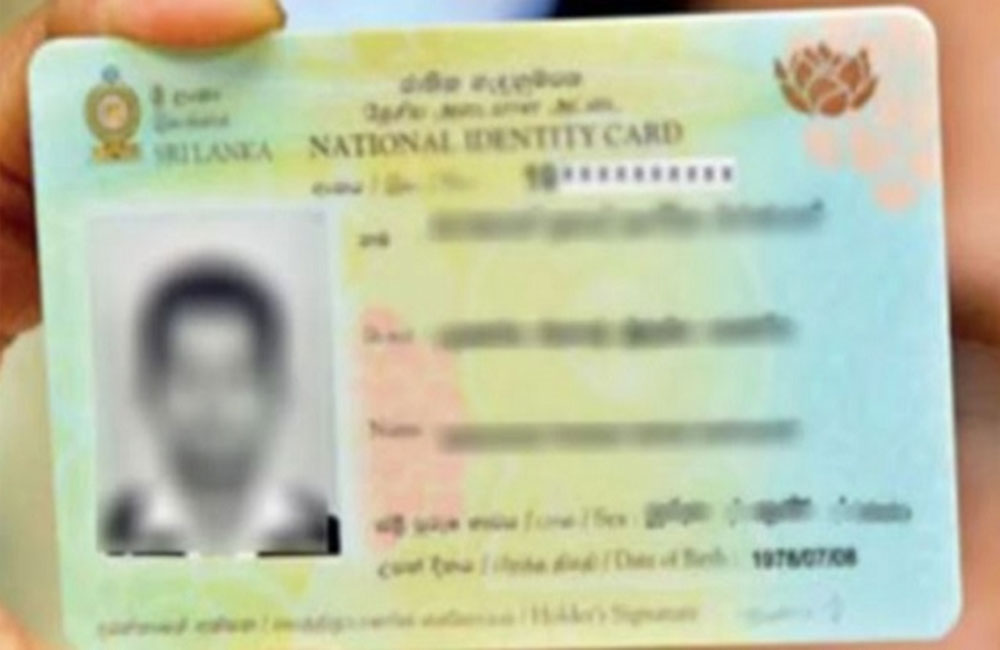
NICs for those without birth certificates
A program is now in place to issue national identity cards to people above the age of 40 who are unable to obtain a national ID card due to the absence of a birth certificate.
A circular on the matter was issued to all Divisional Secretaries, Commissioner General of the Department for Registration of Persons Pradeep Saputhanthri said.
Sri Lankan citizens above 40, who have permanent residence in a Grama Niladhari division, and are registered in the voter's register, who have not yet obtained a national ID card due to the absence of a birth certificate, will have the opportunity to apply for this.
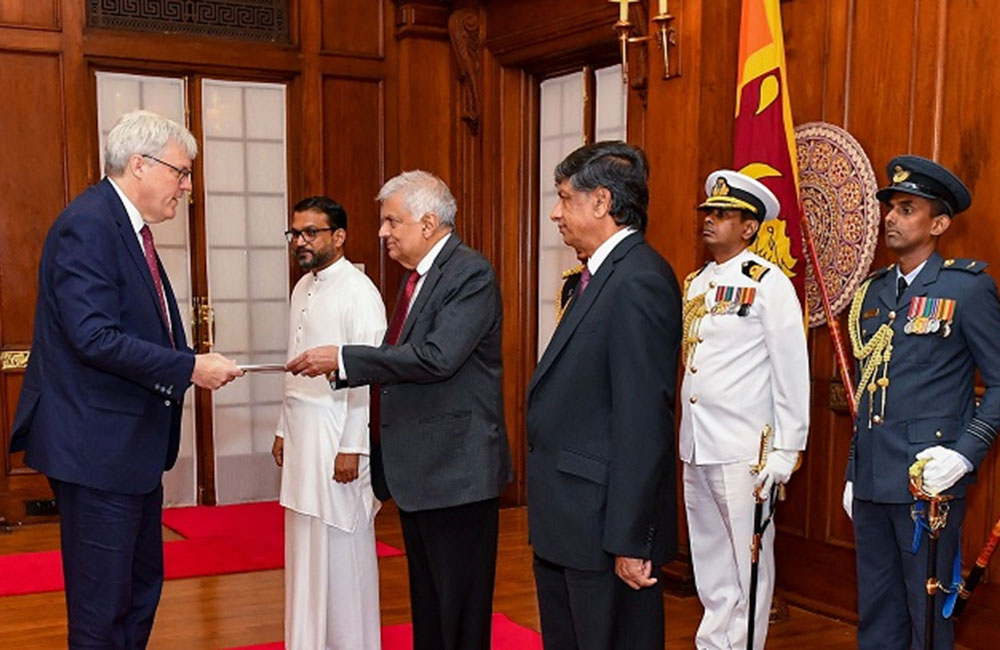
New British High Commissioner presents credentials to President
Andrew Patrick has been appointed as High Commissioner of the United Kingdom of Great Britain and Northern Ireland to Sri Lanka.
According to Sri Lanka’s Foreign Ministry, Andrew Patrick presented his credentials to President Ranil Wickremesinghe at the Presidential Secretariat in Colombo today.
The appointment has been made by the Government of the United Kingdom of Great Britain and Northern Ireland with the concurrence of the Government of Sri Lanka.

CBSL warns public of tax-related scams
Warning the public of online scams, the Central Bank of Sri Lanka (CBSL) has informed the public that it does not collect taxes from the people.
Issuing a special notice, the Central Bank has urged the public to be aware of online scams, such as ‘Get Rich Quick’ schemes.
Stating that some scammers can convince the public to pay taxes to the Central Bank to withdraw their funds, the Central Bank clarified that it does not collect taxes from the people.
The Central Bank further requested the public to be vigilant of such scams as they are likely to lose their hard-earned money.

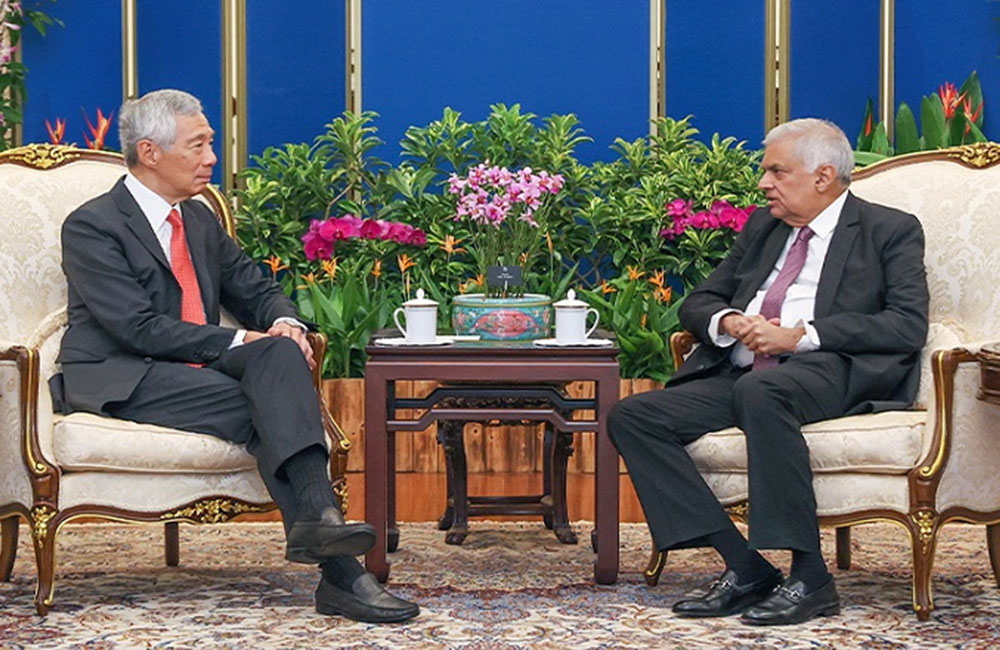
President meets Singapore’s PM, signs new agreement
Sri Lanka and Singapore today signed a Memorandum of Understanding (MoU), centring around the joint venture on carbon credits.
According to the President’s Media Division (PMD), the signing took place following a meeting between President Ranil Wickremesinghe and Singapore’s Prime Minister Lee Hsien Loong earlier today.
The focal point of these discussions was the reinforcement of collaborative efforts between the two nations.
The PMD further stated that the leaders emphasized the importance of sustained cooperation and explored avenues for increased economic involvement.
In the aftermath of this significant meeting, a pivotal step was taken to solidify the partnership between the governments of Sri Lanka and Singapore. A Memorandum of Understanding (MoU) was successfully inked, centring around the joint venture on carbon credits. This landmark collaboration falls under Article 6 of the Paris Agreement, a pivotal framework for global environmental stewardship.
Meanwhile, the historic MoU was signed by Ms Sashikala Premawardhane, High Commissioner of Sri Lanka to Singapore and Mr. Beh Swan Gin, Permanent Secretary (Development), Ministry of Trade and Industry, in the presence of President Wickremesinghe and Prime Minister Lee.
Notable figures accompanying President Wickremesinghe included Chief-of-Staff and National Security Advisor Sagala Ratnayaka, Senior Advisor on Climate Change Ruwan Wijewardena, and Senior Advisor on Economic Stabilisation Dr. R.H. Samaratunga. This assembly of key individuals underscores the seriousness and significance of this agreement.
The PMD added that this strategic partnership not only showcases the commitment of both nations to environmental responsibility but also sets the stage for further collaboration in various sectors, paving the way for a prosperous and sustainable future.
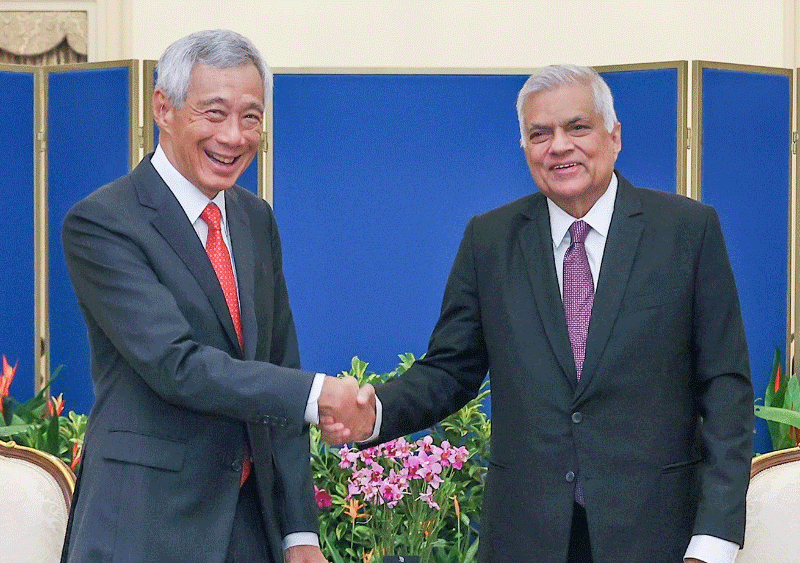
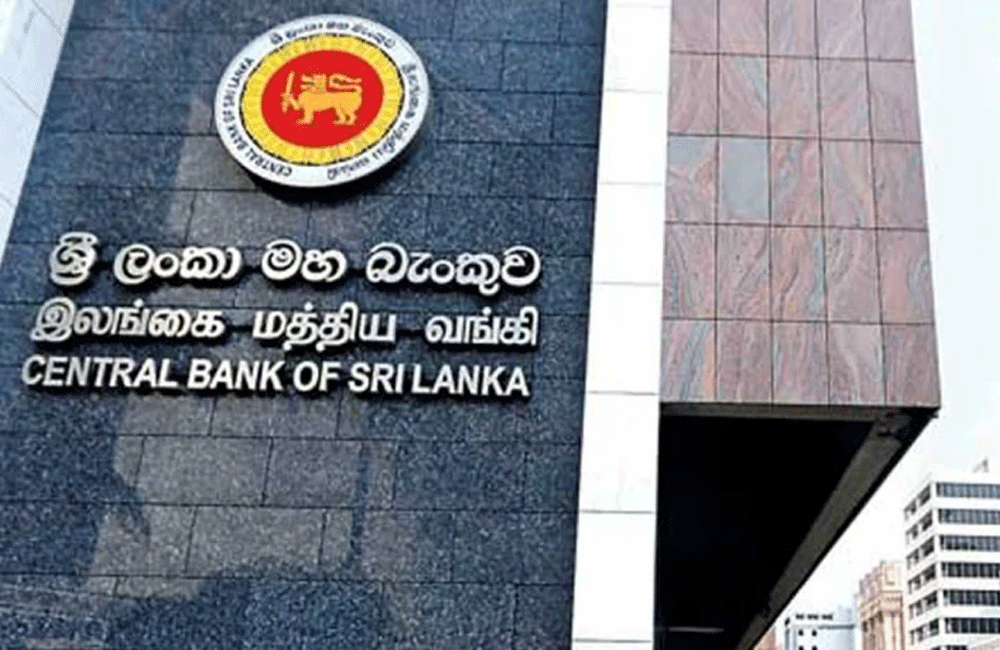
Reducing interest rates : New directive for all banks
The Central Bank of Sri Lanka (CBSL) has released a directive to lower the interest rates on lending services offered by licensed commercial banks (LCBs) and licensed specialized banks (LSBs).
This change will come into effect on August 25th. As a result, reductions in interest rates will apply to various services, including pawning facilities, pre-arranged temporary overdrafts, credit card advances, as well as new and existing lending products denominated in Sri Lankan Rupees (LKR).
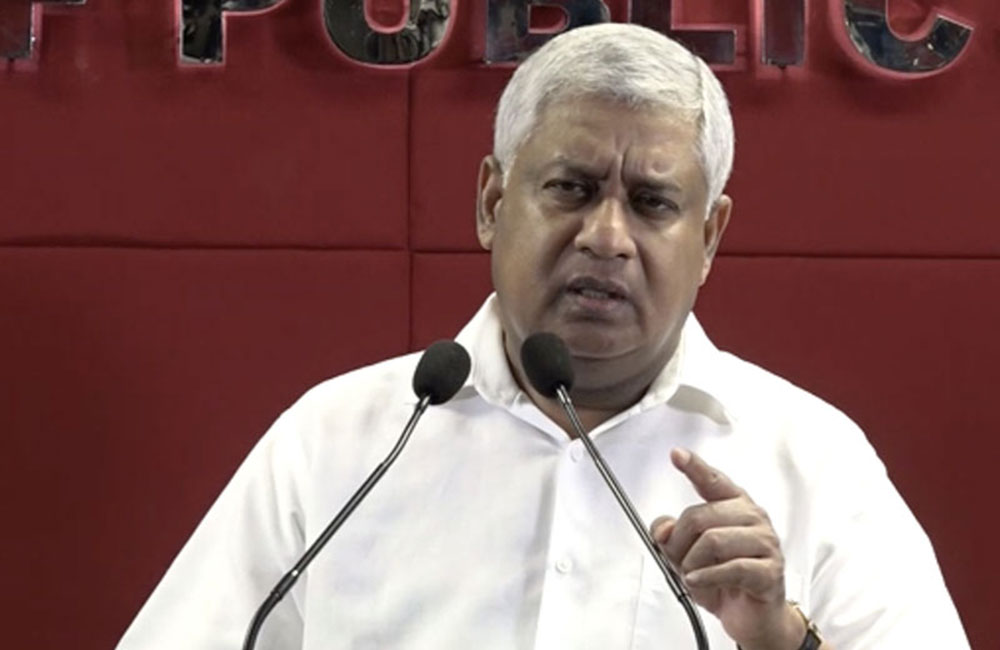
Statement to public from Minister of Public Security
Minister of Public Security Tiran Alles has issued a statement with regard to a remark made by a public representative in reference to an incident at the Ratwatte Estate in the Elkaduwa Plantation in the Matale District.
Stating that violence will not be allowed, Minister Alles stated that the public representative had claimed that it was their right to take action if the government and laws do not protect them.
Minister Tiran Alles requested the estate community and the general public to refrain from taking the laws into their hands and to refrain from acting in such a manner.
The minister warned that stringent action will be taken against those taking the laws into their hand and those aiding such behaviour by falling victim to incidents created by politicians and political parties aiming to secure votes for elections.
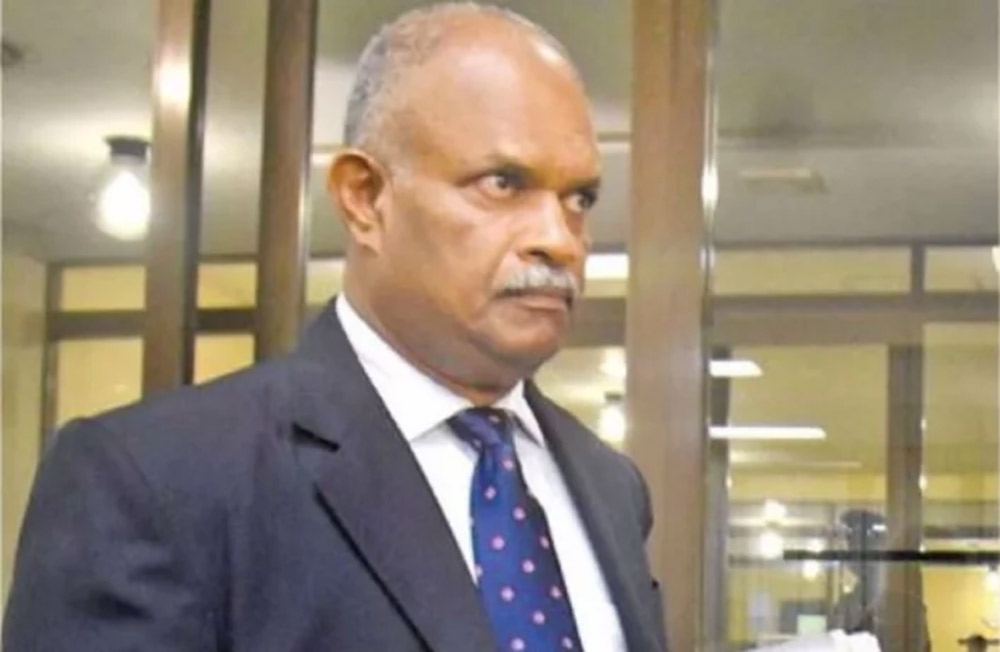
Shani Abeysekara freed from Vaas Gunawardena case
Former Director of the Criminal Investigations Department (CID) Shani Abeysekara and Sub-inspector Sugath Mendis have been discharged from the Gampaha Magistrate’s Court proceedings pertaining to a case involving ex-DIG Vaas Gunawardena.
According to reporters, the Gampaha Magistrate today discharged all four suspects, following submissions made by the Attorney General’s Department and counsel on behalf of the suspects, and despite objections by the Colombo Crimes Division.
Shani Abeysekara, the former senior superintendent of police who headed the CID, is accused of fabricating evidence in the case against former DIG Vaas Gunawardena, his son and four other police officers.
DIG Vaas Gunawardena was convicted and sentenced to death for the abduction and murder of Colombo-based businessman Mohamed Shiyam as a contract killing for $50,000 in May 2013.
Abeysekara was arrested in July 2020 and was charged under the Offensive Weapons Act and Explosives Devices Act for fabricating evidence in the investigation related to former DIG Vaas Gunawardena.
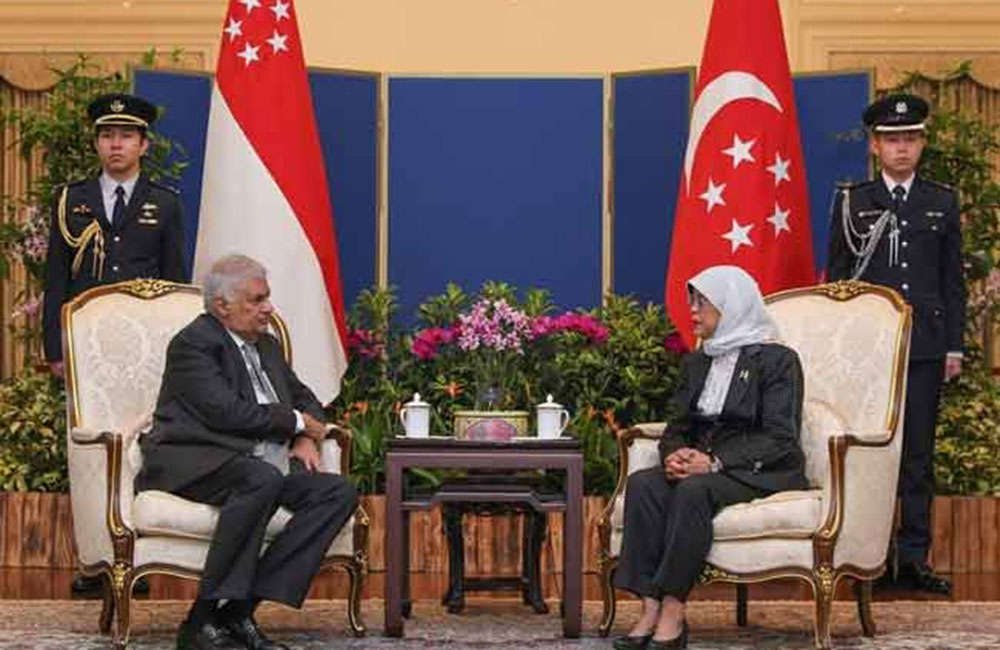
President Ranil meets Singapore’s President
President Ranil Wickremesinghe has met with Singapore’s President, Madam Halimah Yacob on Monday at the Istana in Singapore, the President’s Media Division (PMD) announced.
In a note on her official Facebook page, President Yacob said that the two leaders had fruitful discussions, covering topics including food security, renewable energy and regional economic cooperation.
“Our friendship is anchored by strong people-to-people ties and cooperation across various sectors. There is much scope to deepen our ties. I wish President a productive visit in Singapore,” President Yacob noted in her post.
President Wickremesinghe left for a two-day official visit to Singapore this morning (21), along with a series of significant meetings planned, including discussions with Prime Minister Lee Hsien Loong, Defence Minister Ng Eng Hen, and Sustainability and Environment Minister Grace Fu Hai Yien.
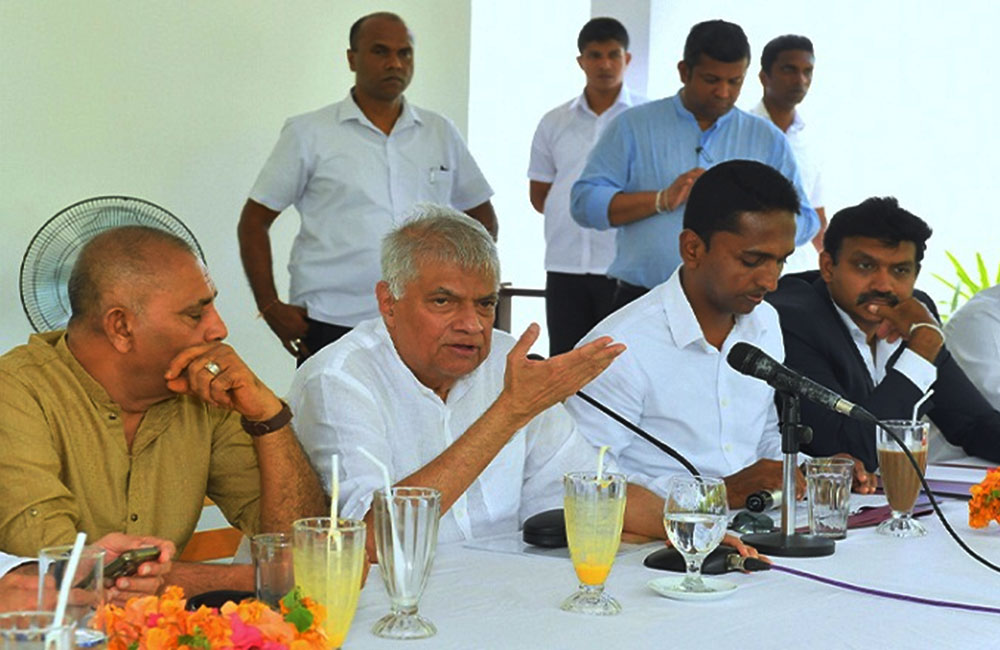
President outlines two-phase Tourism development plan for East
President Ranil Wickremesinghe has announced the swift implementation of a comprehensive plan to elevate the Arugam Bay tourist zone into a highly desirable destination for both local and international tourists, with the potential to generate substantial revenue.
The President emphasized the importance of meticulous planning in identifying areas that necessitate development, with the intention of executing these initiatives systematically. The President further highlighted the prospect of achieving significant income by promoting water sports such as water skiing, which holds popularity along the Arugam Bay coastline.
President Ranil Wickremesinghe conveyed these remarks during a meeting held today (25) with key stakeholders in the tourism industry within the Ampara district. The gathering brought together government officials and industry professionals, aimed at addressing pertinent challenges that have emerged within the tourism sector.
The President underscored that global reports predict tourism to contribute 10% of the global gross domestic product by the year 2035. He stressed that Sri Lanka should proactively prepare for this shift and highlighted the tourism sector’s potential to directly address the nation’s financial challenges.
President Ranil Wickremesinghe also outlined a two-phase development plan for the tourism industry in the Eastern Province, with the ambitious goal of completing it within the next decade.
Furthermore, during his ongoing tour of the Eastern Province, President Ranil Wickremesinghe conducted an inspection of Arugam Bay and Peanut Farm beaches in the Ampara district this morning (25). The President personally assessed the areas’ shortcomings and engaged in cordial conversations with the tourists present there.
Following the site visit, President Wickremesinghe engaged in discussions with the local business community to gain insights into the challenges faced within the tourism sector in the area. This comprehensive engagement reflects the President’s commitment to actively addressing the needs and potential of the Eastern Province’s tourism industry.
In the process of developing the Arugam Bay Coastline into a prominent tourist destination, a proposal was put forth to relocate the existing fishing port to an alternative location, equipped with necessary facilities for fishermen. This proposal was conveyed to the President by Member of Parliament Mr. W.D. Weerasinghe. In response, the President emphasized the urgency of transforming this region into a dedicated tourism area while taking swift action on the proposal.
Furthermore, the President’s attention was drawn to the challenges arising from the absence of permanent property deeds for business premises within the local tourism industry. President Ranil Wickremesinghe stressed the importance of promptly submitting a comprehensive report detailing these issues, with an expectation for viable solutions to be presented.
Another key concern addressed was the availability of drinking water for both business establishments and visiting tourists in the area. Recognizing that the construction of the proposed ‘Hada Oya’ drinking water project might take several more years, President Wickremesinghe directed officials to explore the installation of establishing water treatment plants at existing natural water sources, with assistance from the Navy to address these multifaceted challenges in the pursuit of transforming Arugam Bay as a premier tourist destination while ensuring the well-being of the local community and visiting tourists.
President Ranil Wickremesinghe emphasized the following points:
“Reflecting on the previous year, our nation faced an economic collapse that led us into a state of indebtedness. Thanks to well-executed government initiatives, we managed to avert bankruptcy this year, but the responsibility of repaying these debts remains. Additionally, foreign exchange is pivotal for propelling the country’s progress. Hence, maintaining a favourable trade balance is imperative; otherwise, we risk encountering another economic crisis in a decade due to escalating debt.
To counter this potential scenario, we have devised a novel program. Notably, substantial focus has been directed towards the Eastern Province, with a particular emphasis on the Trincomalee district’s development. In this endeavour, we have secured support from India for advancing the Trincomalee district.
Our plan encompasses harnessing the land portion of the left bank of the Mahaweli zone to facilitate development activities. This includes the establishment of a sizable investment zone spanning approximately a thousand acres. It’s crucial to highlight that, concurrent with the tourism industry’s advancement, an agricultural modernization scheme and a development project for the fishing industry are being formulated to elevate these industries’ prospects.
Moreover, a primary objective is to enhance the living standards of the Ampara district’s people, a region inhabited by economically disadvantaged individuals. This has been a key focus, driving the modernization of both the fishing and agricultural sectors in Ampara. The target of achieving a rice yield of at least 7 to 8 metric tons per hectare is set, with corresponding initiatives in animal husbandry being enacted in the province as well.
In the forthcoming decade, a concerted effort is being directed towards elevating the annual tourist influx from 2.5 million to 5 million initially, followed by a subsequent surge to 10 million visitors. Global projections underscore that by 2035, a significant 10% of the global GDP will be attributed to the tourism sector. Hence, nations must take heed of their contribution to this economic trend.
In line with this, a robust initiative seeks to attract no less than 10-20 million tourists annually to this region. The formulation of a comprehensive strategy to levy fees of $300 or $500 per day per tourist is in progress, aimed at materializing this goal within the Eastern Province.
Presently, the landscape of tourism exhibits distinctive features. A segment of tourists gravitates towards these provinces. Nurturing activities such as water skiing, which holds substantial tourist allure, becomes pivotal.
The complete transformation of this entire region into a dedicated tourist hub is a primary objective. Concurrently, the urban and rural development endeavours must continue to advance. It is imperative to distinguish between the advancement of tourism and the enhancement of people’s livelihoods.
A pivotal focus is directed towards the enhancement of the Ampara bus stand. Strategic arrangements must be crafted to facilitate tourists’ multi-day visits to the Ampara district. Furthermore, a holistic approach should be adopted to render the entire country an enticing destination for tourists. Diligent endeavours are underway to bolster revenue from the burgeoning tourism sector.”
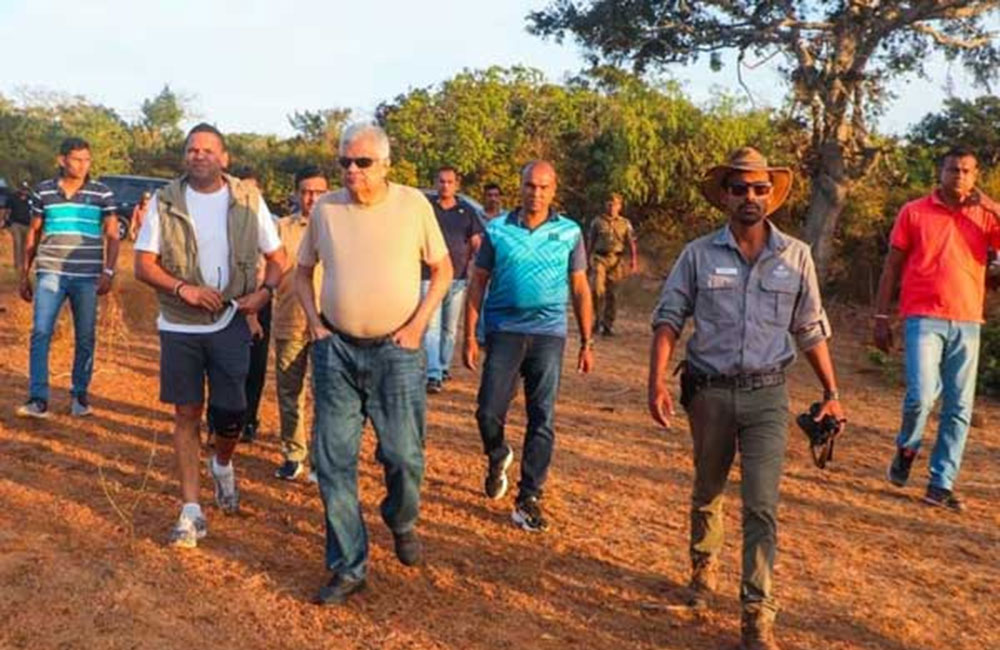
President visit Yala national park
President Ranil Wickremesinghe and US ambassador Julie Chung visited Yala national park yesterday (19).
During the visit, the president discussed introducing an online ticketing mechanism to facilitate the visitors.
He also took part in a water releasing to water bodies dried up due to the drought.
Tourism and Lands Minister Harin Fernando also participated in the visit.
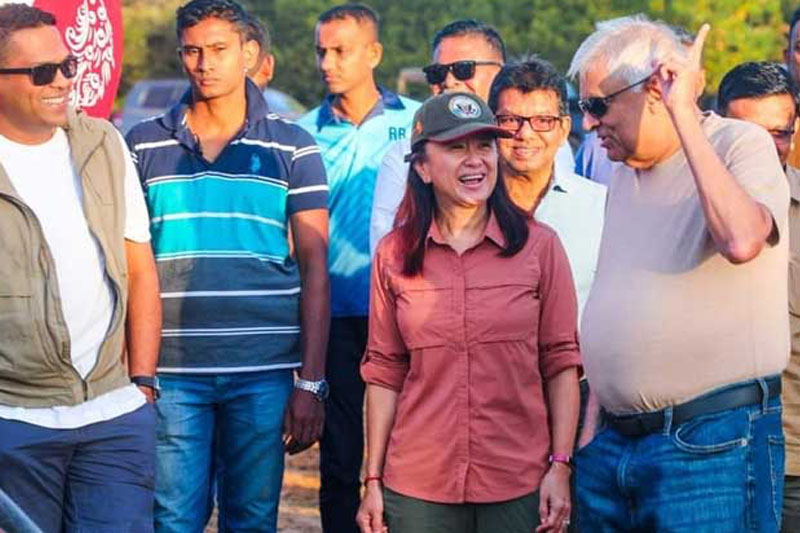
Page 106 of 535